I spent my New Years’ Eve watching a movie I had been looking forward to for a long, long time. That movie was the latest Cory McAbee project, Deep Astronomy and the Romantic Sciences. A film that has been in development for many years, and had only been available to watch at select festival screenings, until it got published on Vimeo at the beginning of December 2023. I needed to see this movie, and when I finally did, it etched itself into my mind like every other Cory McAbee movie I’ve seen.
Before I talk about Deep Astronomy, I need to take some time to talk about McAbee himself. His movies, his music, and the immense influence his work has had on me personally. I cannot for the life of me remember how I discovered McAbee and his former band, The Billy Nayer Show. All I know is that it came during that magical time in my life that I have been so nostalgic for all these years: those cold, dark Winter nights of 2007-2008. In-between hearing the greatest Shoegaze and ethereal music I had heard in my life, I would listen to The Billy Nayer Show’s music; “Roam The World” being a particular favorite song. Then I found out that McAbee made short films too. Now, given the time period, it wasn’t like there were 50 different streaming services or easy ways to get ahold of VHS tapes or DVDs, so all I had to watch would be whatever was on YouTube.
That was when I had heard of The American Astronaut. Not only is this one of my all-time favorite movies, it legitimately altered the course of my whole fucking life. At the time, though I wouldn’t be able to actually see it for another couple of years, and official information on it was pretty scarce. I had actually believed that The American Astronaut would be a departure from McAbee’s other work, as all of the still shots looked a lot more serious in tone. Now, after having seen it, I know that that’s not the case; it’s very much another musical comedy. But those couple years where I was in complete ignorance let my imagination run wild as to what this movie actually was.
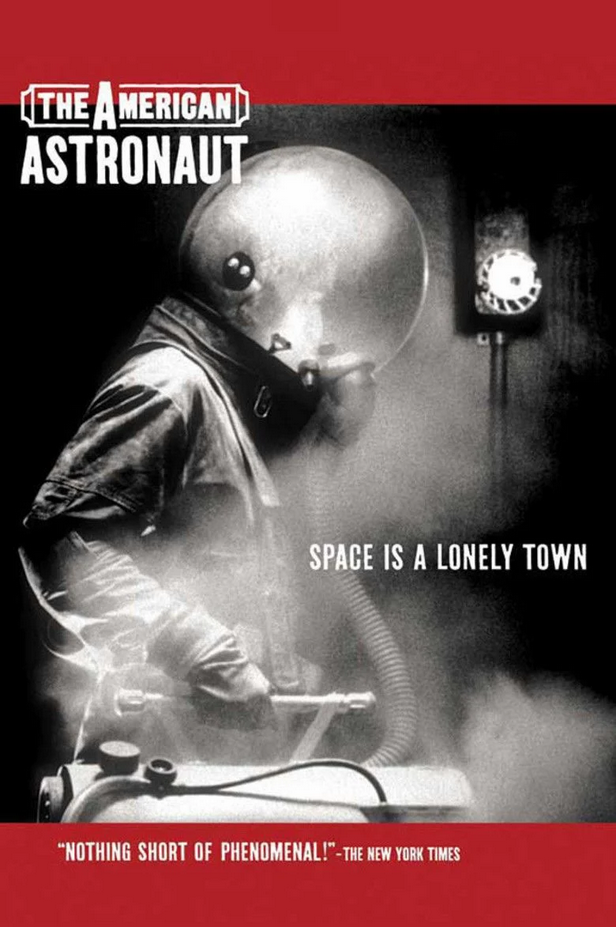
This shot, right here. This shot of McAbee’s character, Samuel Curtis, about to do a low-gravity planetary walk to a space bar, has been stuck in my mind all these years. This movie about space cowboys being gruff and dirty, with an aesthetic reminiscent of things I like: pulp comics, sci-fi serials from the 50s and 60s, and golden age super hero comics. The movie popped up on my radar at the same time I was rekindling my love of outer space; my love for the idea of a lone traveler on a small ship, accompanied only by the humming of the engine and the darkness of the universe.
You may have also noticed that tagline looks a little familiar. Yes, the URL for my website is paraphrased from this movie; I wasn’t joking when I said Cory McAbee was influential on me.
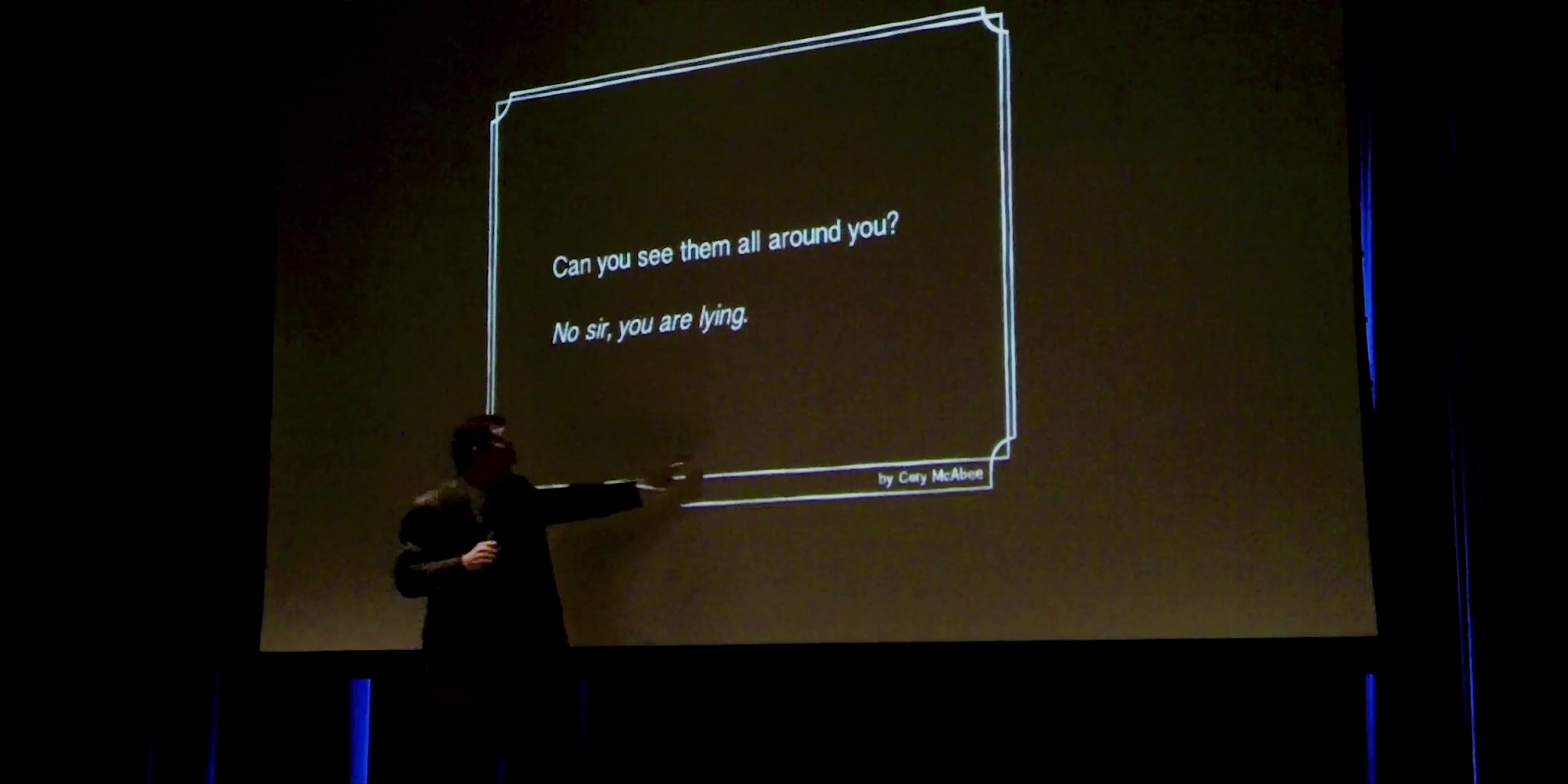
Now then, it’s time for me to actually talk about Deep Astronomy and the Romantic Sciences. It’s a bit of a hard movie to describe in simple terms. Deep Astronomy is a sci-fi film, but it also isn’t a sci-fi film. It’s also a comedy but, well, I’ll get to that later. Most of the scenes in this movie can be described as a bunch of men giving Powerpoint presentations, like I just spent an hour watching TED talks. That sounds boring, right? But it isn’t, this movie is extremely captivating. It involves Cory McAbee, playing himself, but also playing a character, as a frustrated performer who inadvertently creates a new form of combat sport involving Polka dancing that leads to him getting knocked out by an angry fan and believing that he has uncovered the secrets of the universe upon waking up. He then pivots to becoming something of a motivational speaker, spreading the word of what he calls “the Romantic Sciences.” The Romantic Sciences are extremely unscientific ideas presented as fact. Most of these ideas are whatever random thoughts McAbee had in his head at the time, and his many inaccuracies are corrected by fans after his show is over.
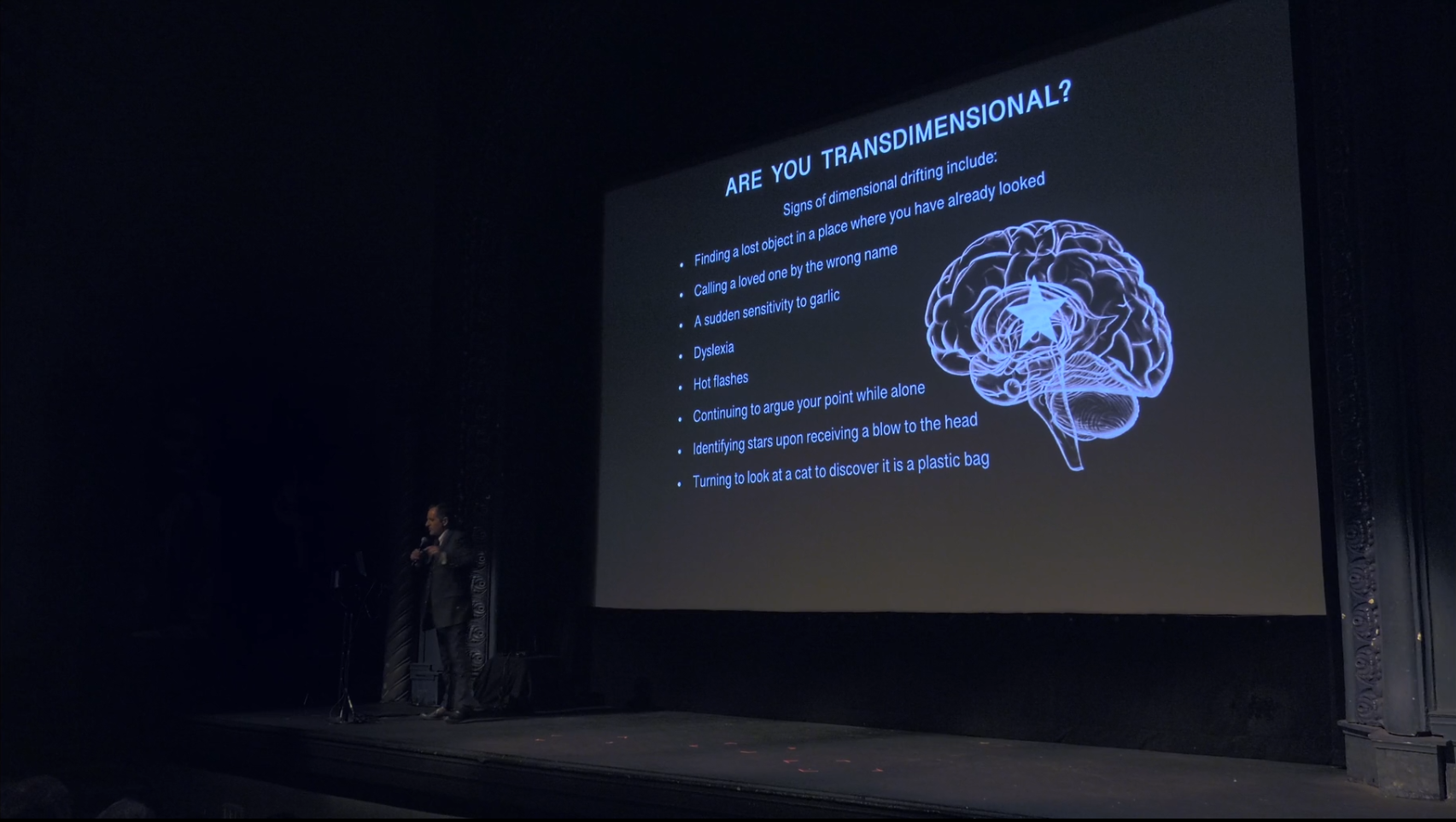
The other half of the film involves a robot named Grace, sitting alone at a bar until a young man named Rudy approaches her and begins a conversation. At first, Grace just seems like the movie’s infodump; she introduces us to McAbee and the Romantic Sciences, as well as the numerous copycats that have sprung up with their own concepts of the Romantic Sciences, but Grace does come into a character all her own eventually. Grace is at this bar to try and understand humanity a little more. You see, she is about to be sent to space as a representative of humanity, and she’s worried she doesn’t have enough data to properly represent the Earth. The thing about Grace is that her understanding of people is through her programming, where she receives every person’s text messages and social media posts the moment they are sent. I don’t think I need to tell you why that’s bad. Her conversation with Rudy will determine whether or not she’s actually ready for her mission.
I’ve been skipping over a thematic element, because it deserves its own paragraph. The Romantic Sciences come across as pseudo-scientific rhetoric at first glance, a quack in a suit spouting bullshit to a crowd. Truth is, the Romantic Sciences are essentially poems. The Romantic Sciences are about making an analogy between the beauty of the universe and the beauty of life. There is a scene that, no joke, took the wind out of me. Cory McAbee is on stage, presenting a theory of human emotion being a form of light that reflects infinitely out into the universe. His example that he presents is a picture of his late mother. Every seminar Cory has given up to this point has had a joke or a punchline to it. Not here. This scene is a man in front of a crowd, talking about the love he still has for his mother, and for all the great memories he had with her that still exist in his mind and his heart. The light of his universe is made up of the memories he has of family picnics and getting kissed before being dropped off at school. I was not expecting this level of emotional earnestness.
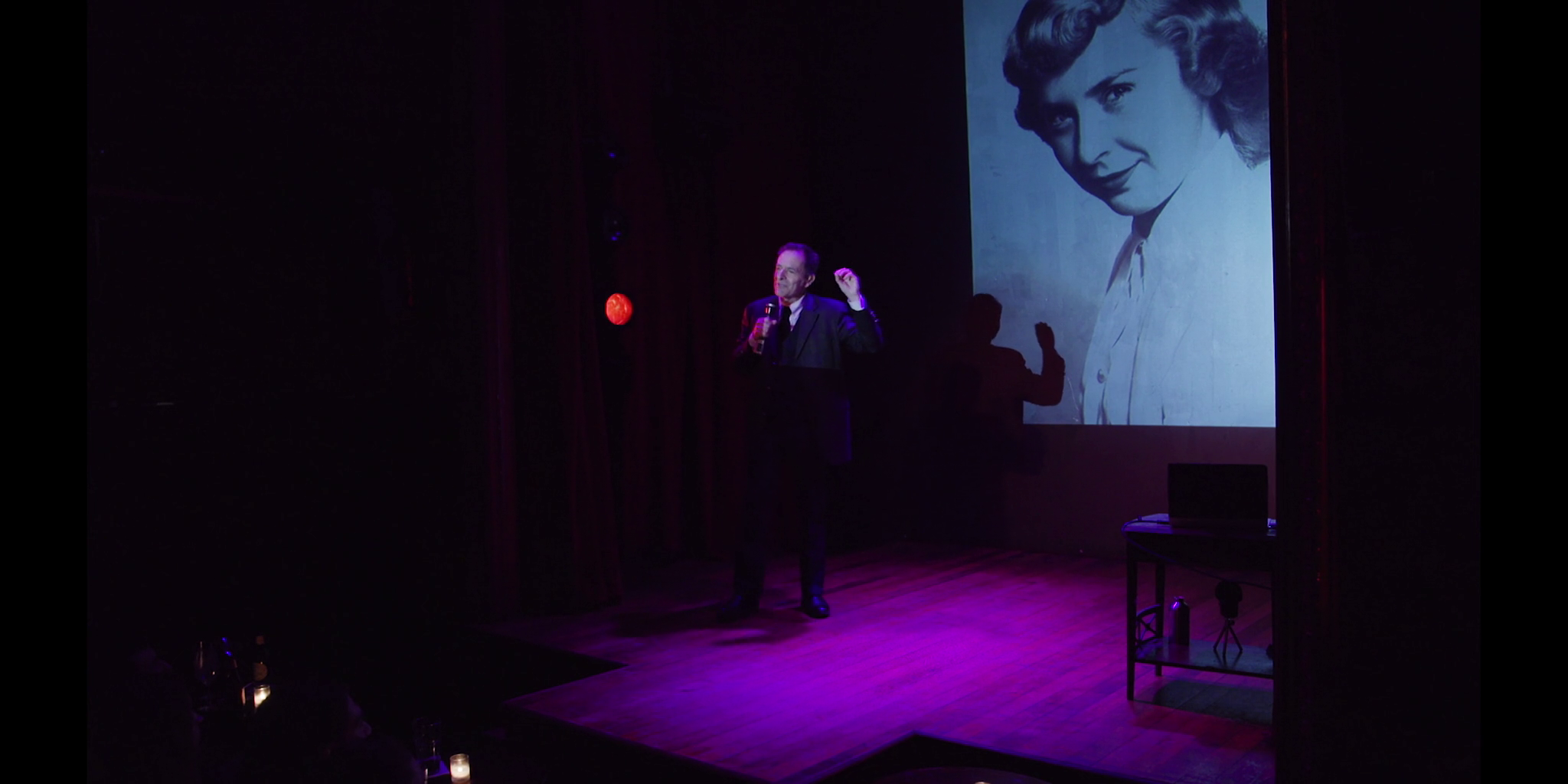
Deep Astronomy is a work of fiction with an undercurrent of non-fictitious honesty. Another theme of the movie is our performative nature as people. Especially in this new digital age, where we present ourselves as something of a product; a person as a brand. Grace is a robot that only knows of humans through the messages they send. She can’t read minds, and doesn’t talk to other humans all that often. Her mission to space is to represent humanity, but she would only be representing us through our own representations. At least 95% of what Grace would share with the universe would not have an ounce of genuine emotion behind it. I admit that the beginning of the movie made me wary. I was worried that this movie was going to be some complaint about kids always being on their damn phones. It’s not. It’s about the expectation of us being on our phones. A phone is now just another venue for performance. There is an expectation of people to perform. Cory McAbee plays himself. Cory McAbee is a real person in our reality with his own life and thoughts and feelings, but Cory McAbee is also a fictional character in this movie with a very different series of thoughts; the real Cory McAbee (probably) doesn’t actually believe that a star formed in the back of his brain after he got punched in the face. Nobody is immune to this performance that we all put on. There’s a difference between making a good impression, and living a parasocial lie, which is what Deep Astronomy is trying to point out. But behind that fucked up marketing of ourselves, there are people holding those phones; there are people behind those social media accounts. There is more of a focus on the kindness and generosity of others when those metaphorical cameras are off. That’s what makes us Us. The Romantic Sciences are a plea to not let the light of our respective universes be snuffed out. Something that should be common sense becomes a powerful message in a dire time.
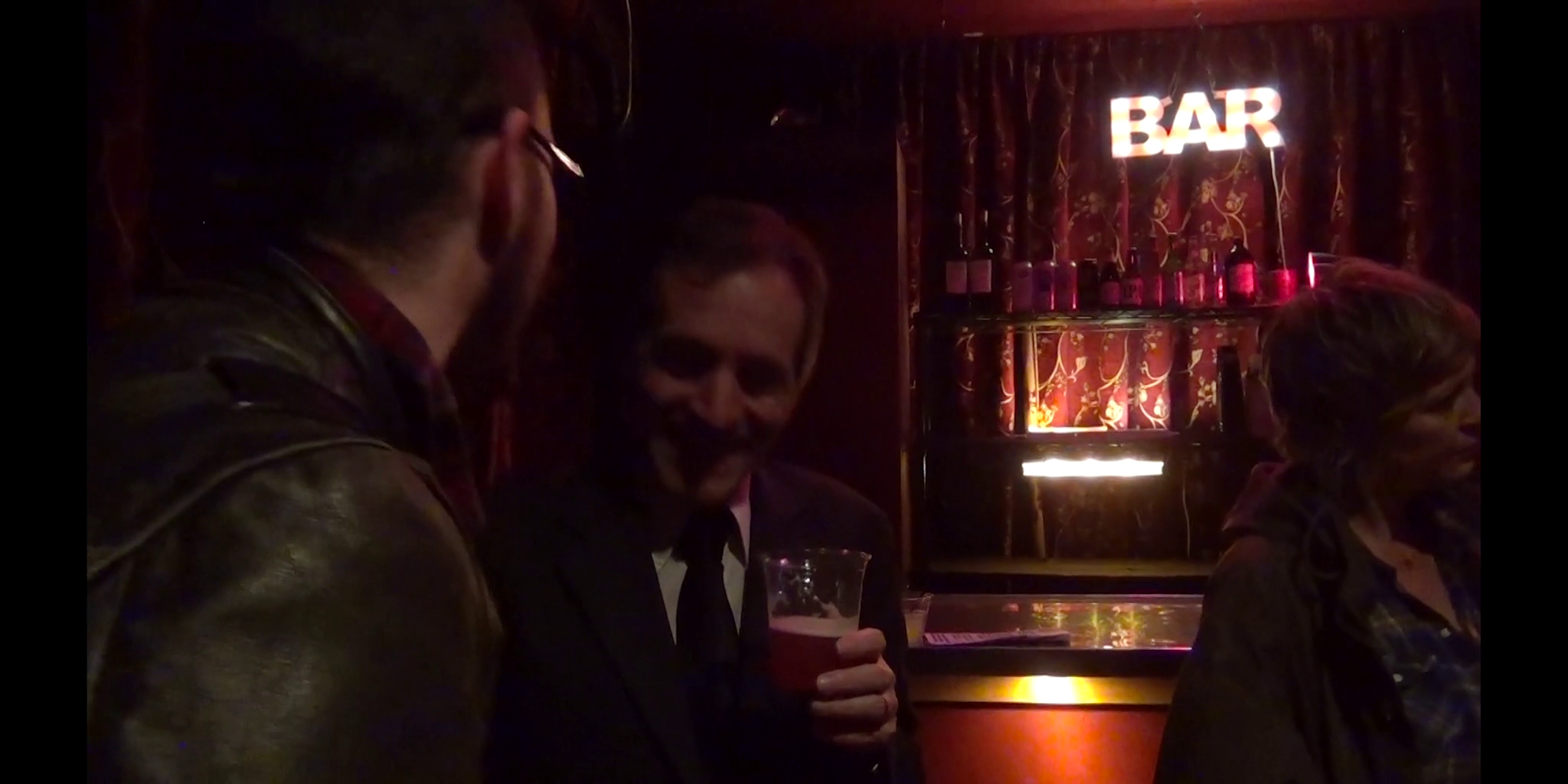
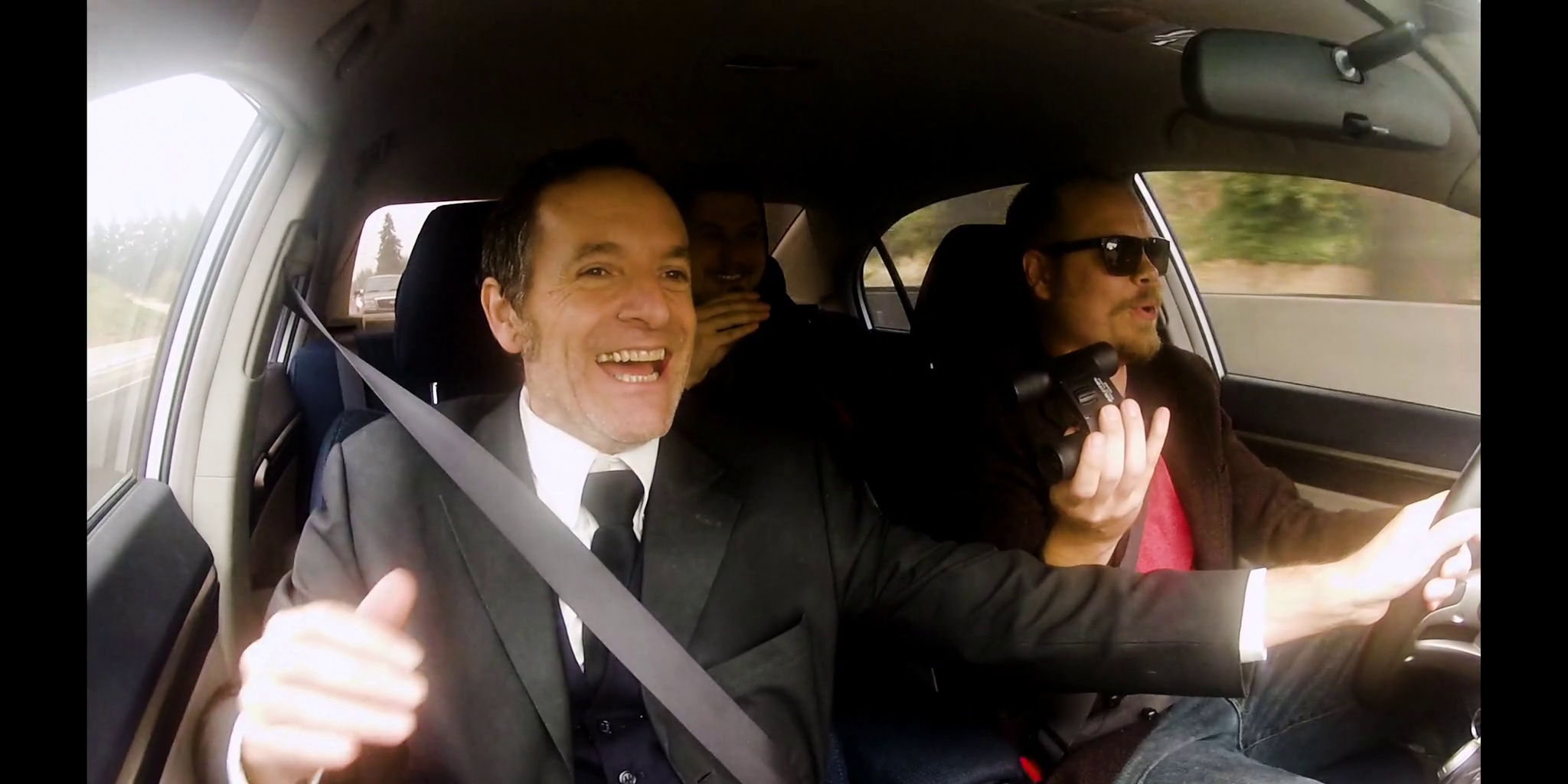
I wanted to take a moment to point out something that I took away from the movie. There are other speakers who have followed in McAbee’s footsteps. But unlike McAbee, who shows a genuine love and enthusiasm for his work to the point of nearly being breathless in several scenes, the other speakers show anything but. They stand on stage, barely animated. Slick talking men using marketing lingo or parasocial language (Handsome Sebastian ends his seminar telling the audience “I Love You”), presenting pseudo-science ideas that they don’t look like they actually believe in, lacking the whole “allegory for the human spirit” thing. One character in particular straight up steals McAbee’s ideas, presents it as a product (a product that does not actually exist), and manages to become one of the richest people in the world from it, while McAbee does not see a single penny. This spoke to me as an artist. All these rip-offs and copycats of McAbee and his Small Star Corporation becoming richer and more successful off of predatory scams and predatory behavior. All too often, a brilliant person will create something beautiful, and will be forced to watch as their creation is stolen, bastardized, and repackaged as something much worse that gets seen and loved by more people. In this movie, these people saw the Romantic Sciences not as an attempt at poetic performance, but as a weird guy saying weird shit that sounded vaguely scientific and got an audience from it. It is beyond frustrating to see your work get stolen from some fucking asshole you wouldn’t piss on if they were on fire, and see them become popular from it. Cory was speaking my language with this one. I can only imagine how different Deep Astronomy would have been if it had been written during this recent invasion of AI generation (I will never call it AI “art,” go fuck yourself).
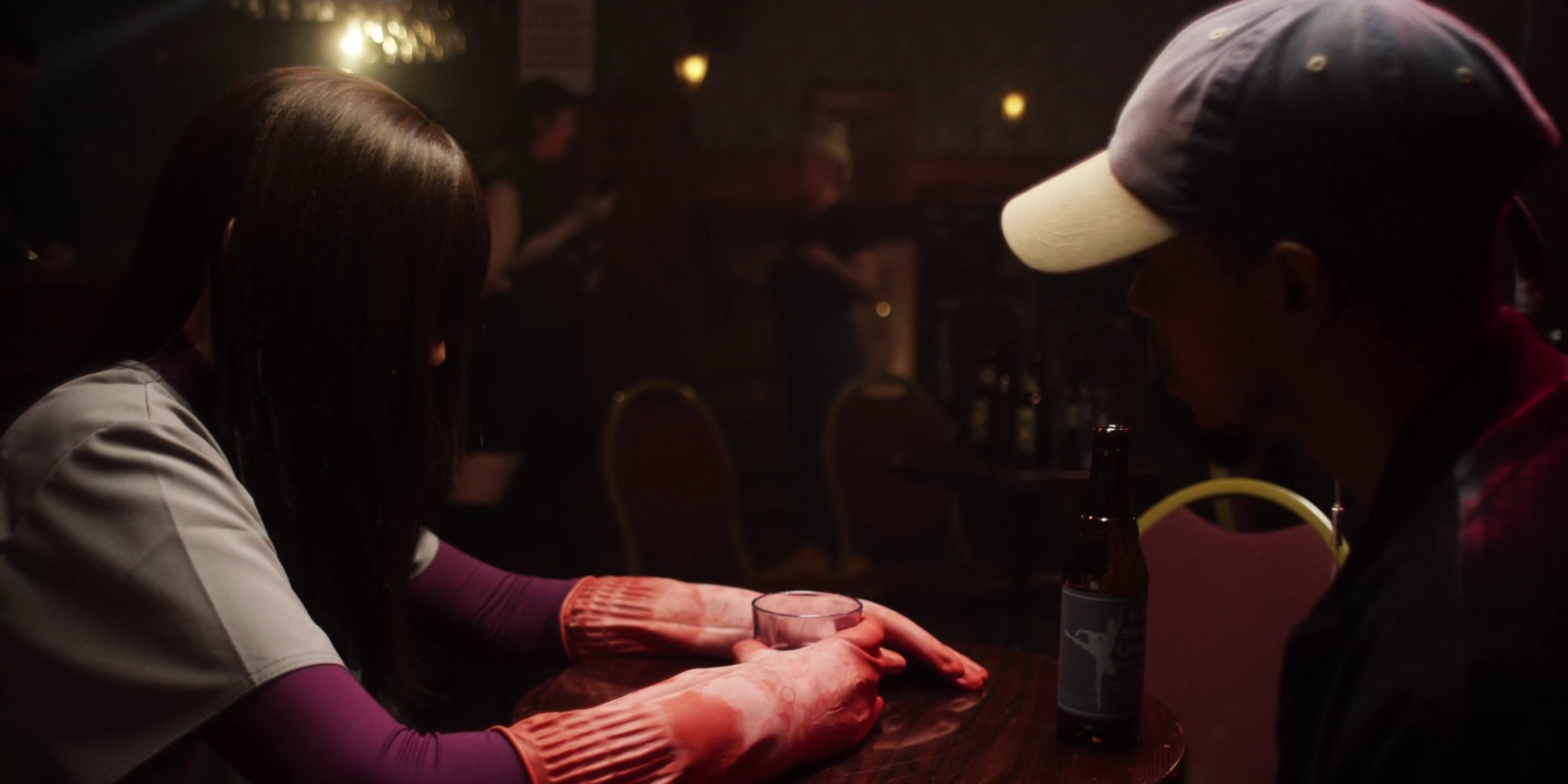
I will finish this by telling you, the reader, to please, please, go watch this film. It’s available for free on its official website. Get the soundtrack too, it’s only seven bucks on Bandcamp. I need to reiterate that I think that Cory McAbee is nothing short of a genius. A man who has, again, influenced my life, and I have not been able to get this movie out of my head in the past week since I have seen it. I can only hope that maybe some of you may be inspired the same way I was. If nothing else, we should all at least try to remember the stars inside our mind.



Comments